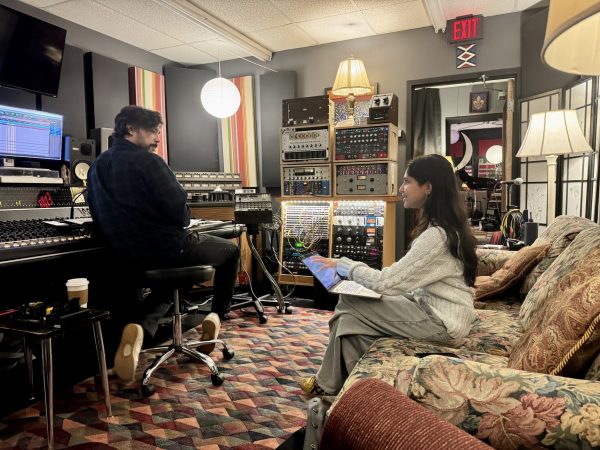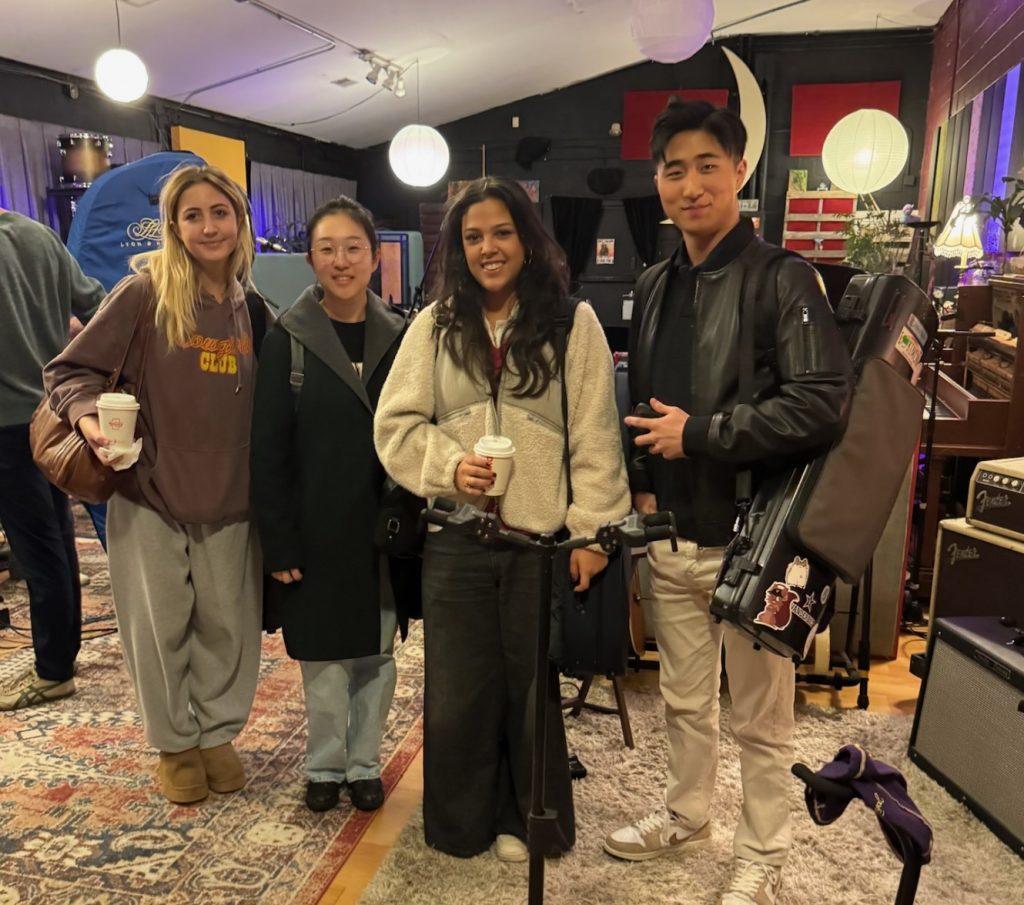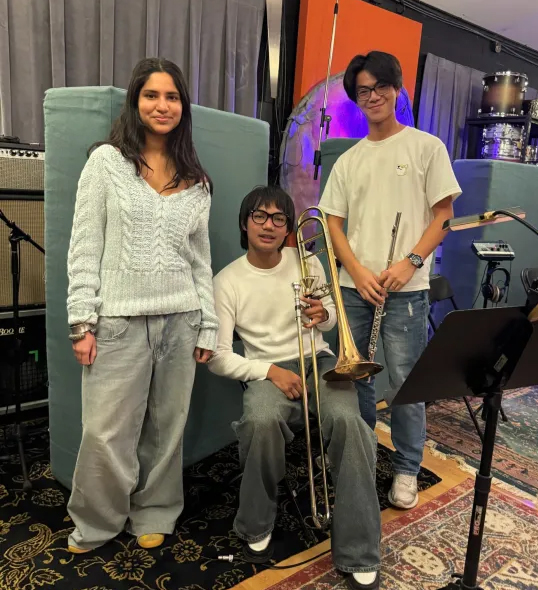“… the entire thing came together in two weeks, which I genuinely in hindsight don’t know how that happened.” – Aaliya Ramakrishnan
When Blair composition student Aaliya Ramakrishnan was asked to create the music for an ambitious AI film project led by a group of 40 Vanderbilt students, she may not have envisioned the whirlwind it would set in motion. But her original score, recorded by a group of Blair student musicians, became an integral element of Imagine Land 2040, premiered in December at a United Nations conference in Riyadh, Saudia Arabia. The film was created through a partnership with the G20 Global Land Initiative, marking the U.N.’s first AI-driven film endeavor.

In addition to the Riyadh premiere, Imagine Land 2040 was recently screened at Vanderbilt’s Sarratt Cinema, the START Summit startup conference in Switzerland, and will be featured in the Seoul 2024 AI Film Festival in South Korea.
We caught up with Aaliya, a Class of 2026 music composition and mathematics major, just before spring break to get the background on how this project came to fruition.
How did you become involved with the Imagine Land 2040 film?
I’d worked with this group of students called Tomorrow in Focus once before in the fall of 2023 on a short film called Cupid. So, one year later when they got this opportunity from the UN, they reached out to me again and said, “would you be interested?” And I was like, “of course.”
Was the film largely done when you composed the music or was it created collaboratively as it was developed?
The film was basically just beginning when they told me about the project because the three vignettes in the middle are completely generated on AI. The technology is really new and I don’t think any of the filmmakers really knew how to even use the technology when they began the project. They told me from the start that the timeline would be extremely tight.
They shot the live action stuff in September or October, so I already had a sense of the aesthetics and how it would come together. And then the AI vignettes, they were still developing them.
How long did it take to create the score?
I really only got to compose and record it in two weeks. I spent one week composing, basically pulling all-nighters. I would sit in Blair from 10:00 p.m. to 3:00 a.m. for that week. It began Saturday, November 9th. I remember this because it was my birthday night and I was like, “okay, time to lock in,” which was an interesting way to spend your 21st birthday!
A bunch of Blair students were very, very kind to lend me their entire Sunday. Basically, we went to the studio and did a bunch of takes over five or six hours. And then the next week was spent putting it together, smoothening things out, making sure that all the recordings sit together. And then that following Saturday it had to be done because I left for Thanksgiving break. It was actually insane, because the entire thing came together in two weeks, which I genuinely in hindsight don’t know how that happened.


Where did you record?
The score was recorded at The Studio Nashville and it was a really wonderful experience. I got the recommendation from a friend of mine at Blair, who is a jazz major and he does a bunch of his recordings there. It was such a calm and relaxing environment and almost felt that like you were playing in a living room. The studio has cool art surrounding you and it’s such a lovely space to be creative in. That put the musicians and myself at ease.
Was this your first time to record in a professional studio?
Yes! Before the studio session I worked with my professor, Molly Herron, and asked her to tell me everything she knew about how to make this work and how to not sound like an idiot in this professional situation. This was also the first recording session for the musicians I worked with from Blair.
Looking back, what is your takeaway from this project?
Initially when I heard about all of the AI being used in this movie, I felt immediate distrust, I was pretty horrified as a musician because it’s something that may take my job a few years down the line. Throughout the process everyone was so artistically involved. And I think, to some extent, figuring out how to make new technology work for you is as important as sticking to more traditional forms of doing it.
What led you to pursue a double major of music composition and mathematics at Vanderbilt?
I’ve always been super passionate about both music and mathematics, and since almost as long as I can remember, as much as I wanted to be a musician, I always I was also like very drawn to math and I think one of the things about Blair that I really liked, from my first conversation with professor (Michael) Slayton was that he stressed that being a music major here does not mean that you have to give up your other passions, in fact, you can grow both of those fields. While I love both music and math, they have been pretty separate, with my math work taking place completely in the walls of Stephenson and my music happening at Blair. I’m realizing that there are so many links between the two. I like the combination of the abstract and the concrete, which is something that’s very prominent in both music and math.
I’m looking at ways to combine the two for a career, looking into fields like music computation or music information retrieval; ways in which I could use my mathematical skills and knowledge to develop musical ideas, as well.
* * *
This story includes excerpts from “Student team uses AI and filmmaking to inspire change“ by Amy Wolf. Used with permission.